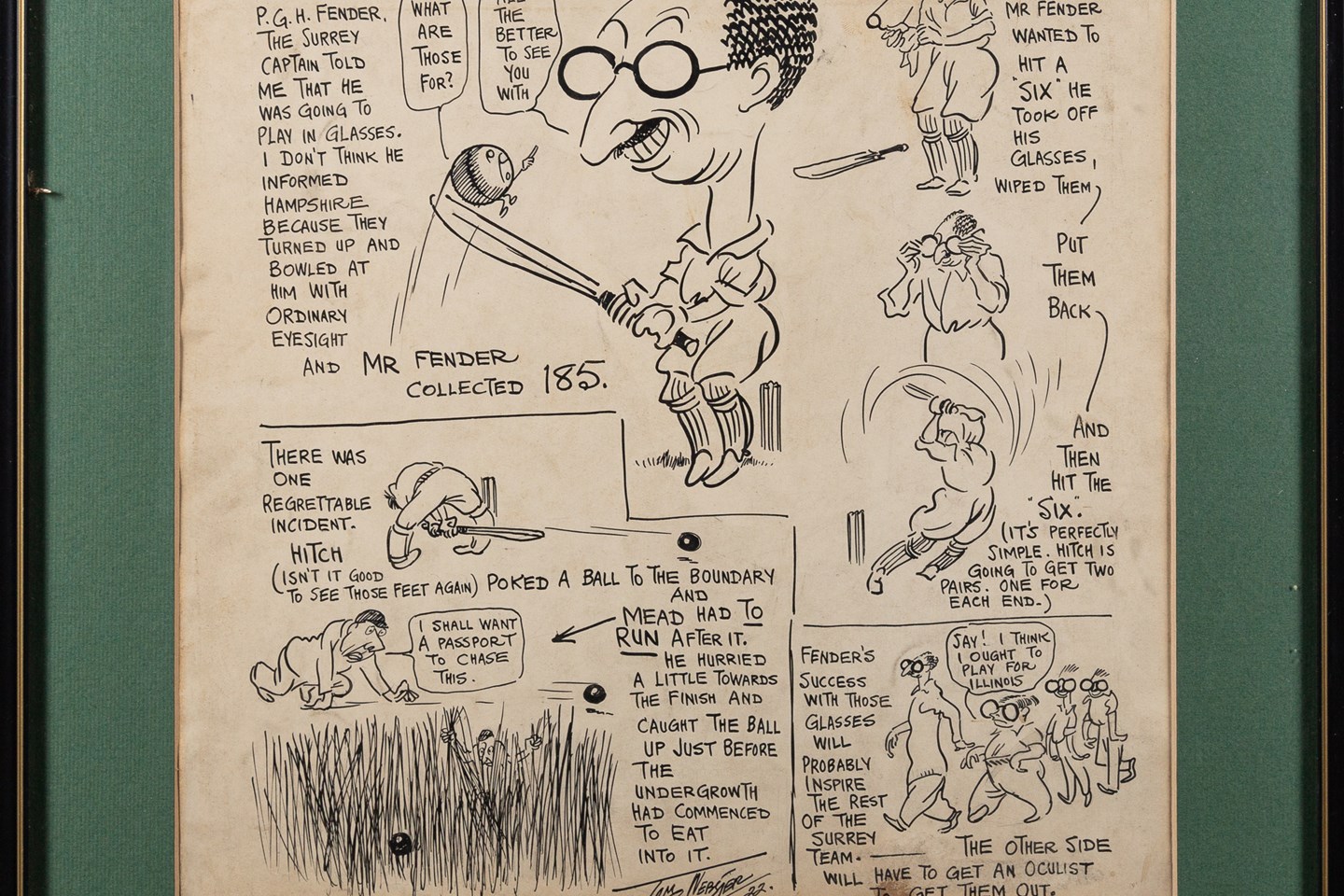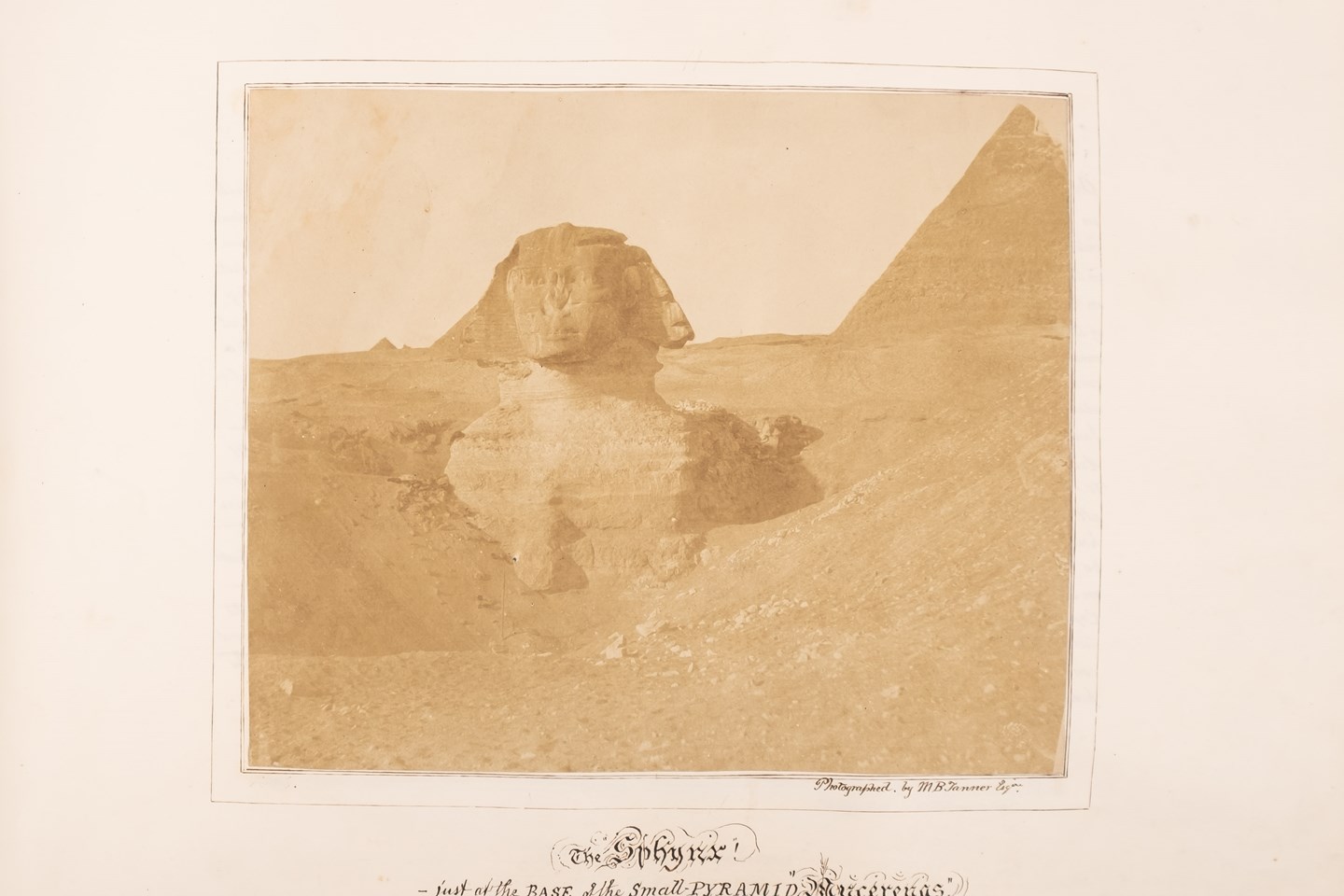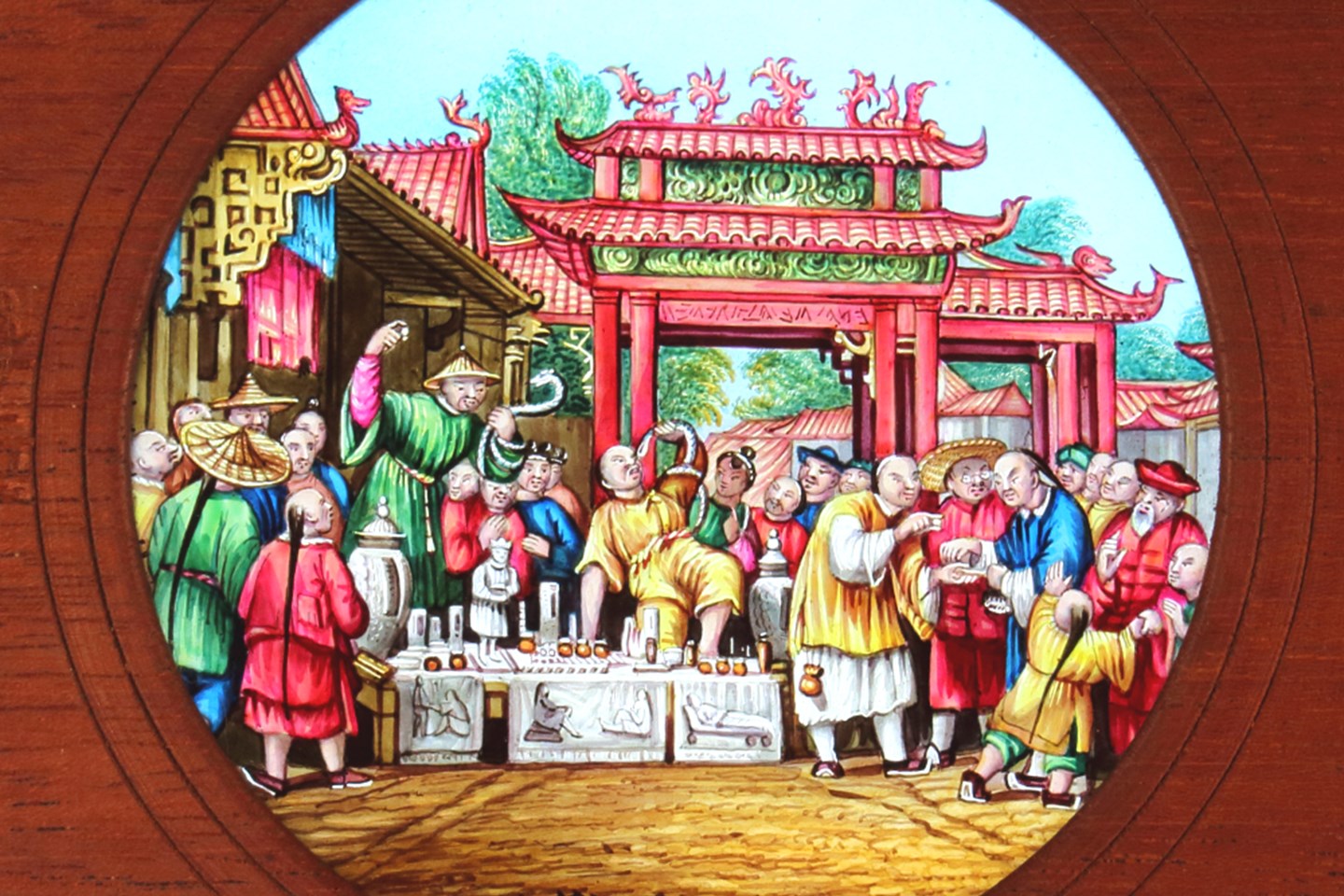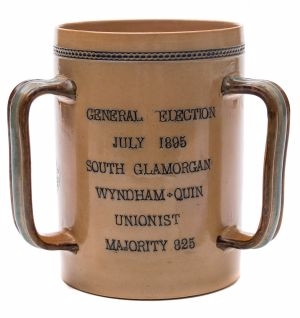
A Doulton political commemorative tyg (FS35/719).
On the face of it, few things sound less collectable than political ceramics. It's one thing to vote, but entirely another to spend your cash on it. This a shame as there is plenty of interesting material out there, regardless of your personal persuasions.
Yes, there are some rather dry looking pieces such as the Doulton Lambeth stoneware tyg that celebrates Windham Wyndham-Quins (his parents obviously had a sense of humour) election success in 1895. It may be rather direct and to the point, but scratch beneath the surface and it becomes more interesting.
It is often said that a week is a long time in politics, but as the Conservatives had not beaten the Liberals for nearly two generations, you can see why they might wish to commemorate the event albeit that they did so with a new Liberal splinter group called the Liberal Unionists.
To contemporary eyes the majority of 895 seems pretty slim but consider that the voter turnout pre-universal suffrage was a little over 2.5 million as opposed to 32 million in the last election then it becomes a comfortable margin. Finally, it might be that the 5th Earl of Dunraven and Mount-Earl was born with a silver spoon in his mouth, but he certainly had a moral compass as he served in the First Boer War and later as a serving MP volunteered to go to the Second Boer War in 1900.
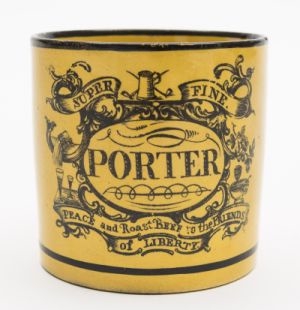
A Staffordshire porter mug with anti French sentiments (FS35/696).
Another interesting, but nuanced mug is a canary yellow porter mug (porter, or stout, being strong dark beer) made in the first few decades of the 19th century. Is this just a mug for porter or was there a 'super fine' politician called Porter, who knows? Certainly the jingoistic sentiments 'Peace and Roast Beef to the friends of Liberty' couldn't be more patriotic with a sideways swipe to our Republican French neighbours. At the very least, it is a toast to the stability that flows from peace and plenty, after all a happy, rich and well-nourished country is a powerful one.
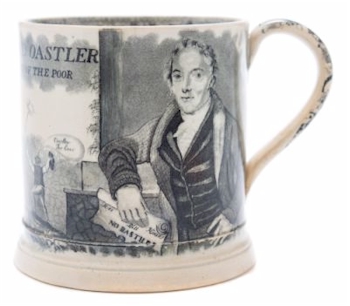
A mug commemorating Richard Oastler Friend of the Poor (FS35/686).
Not all political commemoratives feature MPs. Some promote the agitator, take Richard Oastler 'The Friend of the Poor'. This mug dating from the 1850s has a statesman-like image of him holding a scroll that reads 'Ten Hours Bill' and 'No Bastilles'. Opposing the Poor Law of 1834 which enforced impoverished farm labourers to work in factories for a pittance, he lost his job and was imprisoned. Also against child labour, he lobbied for a ten hour working day. The reference to 'No Bastilles' isn't an anti-French comment, but anti-workhouse, as he saw them as little more than prisons in which families were separated and forced to work.
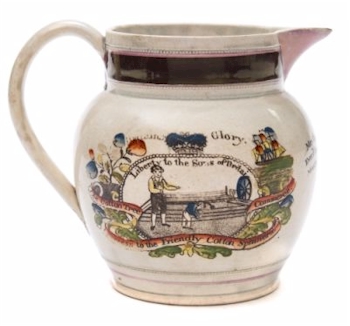
A jug commemorating the role of the Friendly Cotton Spinners a proto trade union (FS35/704).
Commemorative ceramics also feature Trade Unions as shown by a jug wishing 'Success to the Friendly Cotton Spinners' a proto union that was beginning to flex its political muscles in support of its members. They refer to themselves as 'Britain's Glory' and show a skilled weaver and a child working underneath the loom. It indicates they were pragmatic as the caption beneath the spout also reads 'May the Spinners ever flourish and their Master never fail'. It seems nobody gained if industrial relations broke down, which in Blackburn in 1878 they certainly did.
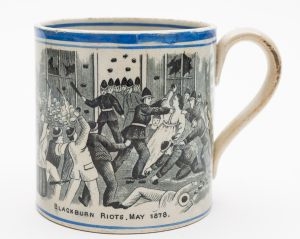
A Staffordshire pottery mug showing the cotton riots in Blackburn (FS35/697).
During an economic slump, a pay cut was introduced that caused the workers to strike. Initially peaceful, things came to a head when frustrated employees attacked the factory and the local constabulary, eventually looting and razing the mill owner's house. One has to wonder for whom this mug with all its mob violence and police brutality was intended as it can't have been the workers who eventually capitulated and accepted a 10% cut.
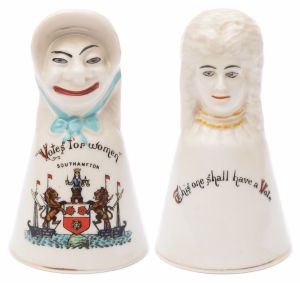
A politically incorrect table bell with anti suffragette sentiments.
Unsurprisingly, all of the pieces above were ale mugs and jugs, which rather suggests where most politics got debated. However, a piece more likely to appear on a dressing table is a crested ware china bell. These and similar pieces were sold to day trippers as an innocent reminder of their destination so it is surprising that they also might carry a message. On one side, there is a beauty captioned 'This one will have a Vote' and on the reverse there is a crone captioned 'Votes for Women'. Produced before universal suffrage was achieved, the message is both paternalistic and sexist.
Finally indicating that commemoratives and satire still go hand in hand I leave you with a mug in the form of a clockwork John Major made for the T.V. show Spitting Image and a novelty figure of Edwina Currie MP bursting from an egg. Now it's not often you'd get those two in the same place is it?
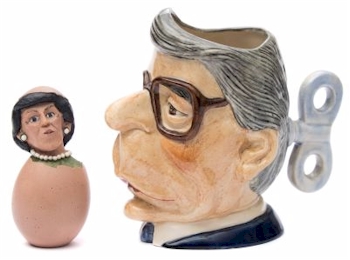
Not all political commemorative china is flattering!
- Bearnes Hampton & Littlewood
- Political Commemoratives
Political Commemoratives was written on Thursday, 15th June 2017.









